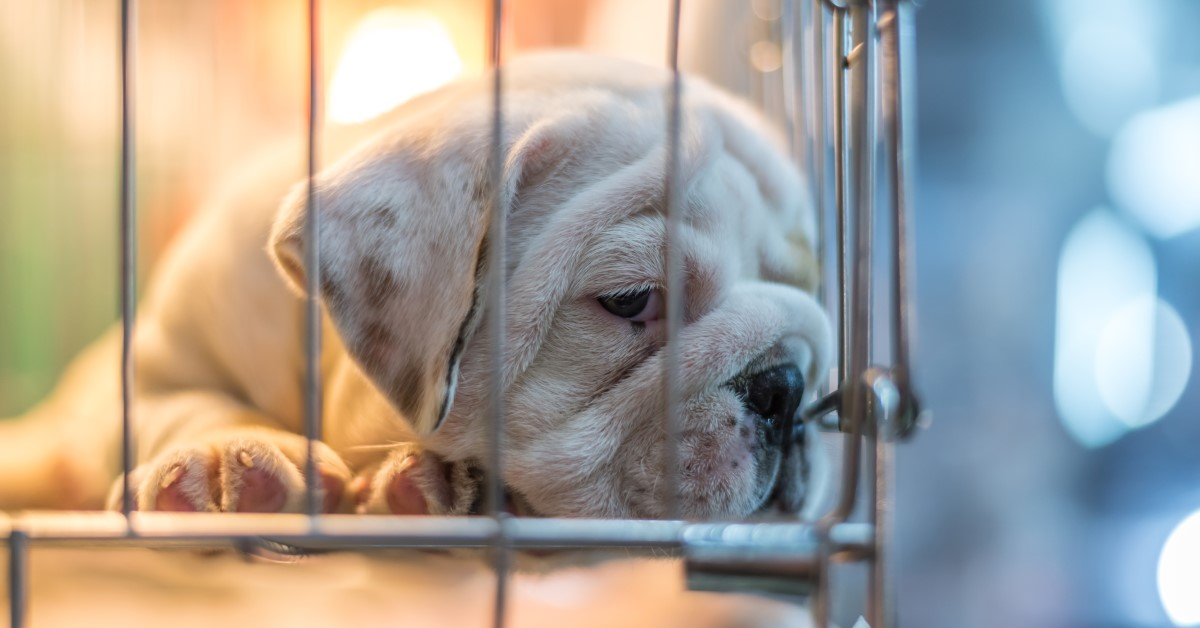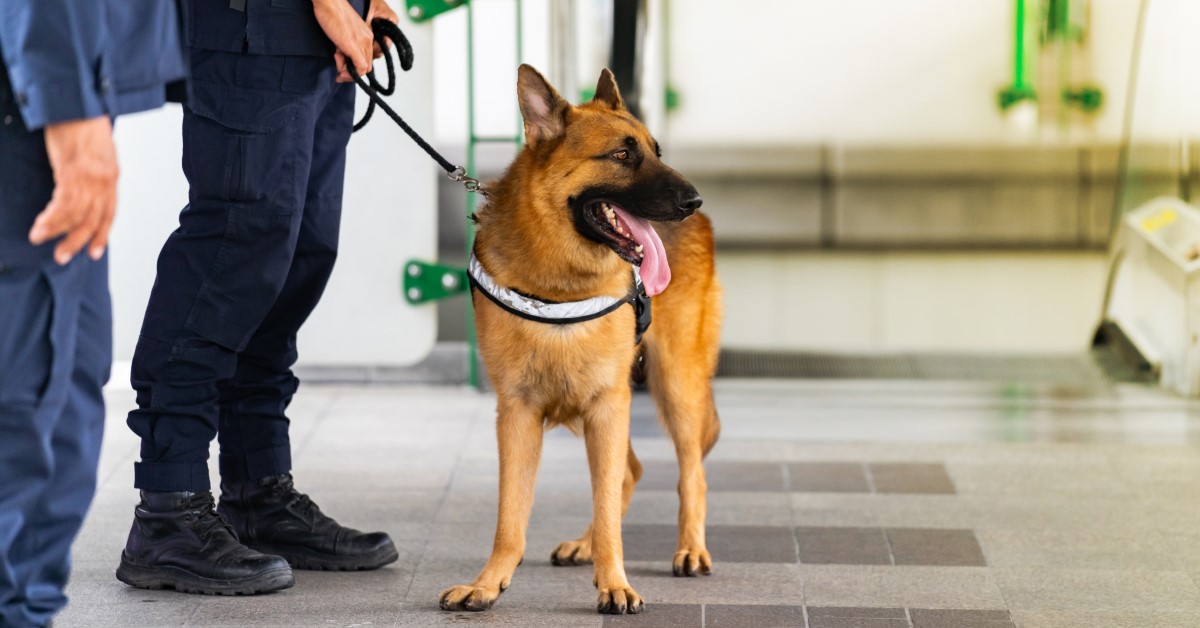What You Need to Know About Adopting a Puppy Mill Dog
More people are adopting dogs than ever before, and no pet needs a home more than a puppy mill dog. Puppy mill dogs need special handling and care that requires a lot of patience and compassion from its new adoptive family. Here you'll read about the unique behaviors and problems a puppy mill dog can bring into your home.

During the pandemic, Americans were lonely, and thus, 30 percent of those lonely people adopted a pet, many of which were dogs. Now, 63.4 million households in the United States are home to at least one dog. Some of these purchases and adoptions are puppy mill dogs.
Puppy Mills – the Scourge of the Dog World
Think tons and tons of puppies and dogs, living in squalor with little to no human interaction, and there you have it – a puppy mill – only it is really a lot worse than that. These large-scale breeding facilities often house hundreds and even thousands of breeding dogs as well as litter after litter of puppies. They have no interest in responsible breeding or keeping records of what puppies come from which parents. Cruelly, when a mother breeder is no longer producing puppies, she is “taken out of service”, which often means she’s killed. The bottom line is that puppy mills are in the business for just one thing: to make lots of money as quickly as they can.
Puppy Mill Conditions
To paint the picture of the conditions for the dogs and puppies in a puppy mill is to be horrified. The pups are caged; usually, several dogs in a small wire cage, with cages stacked one on top of another. Sometimes the cages are kept outside where the dogs are left to survive in extreme temperatures year-round; others are housed in sheds of dilapidated buildings that have no heat. Even though the cage design with wire floors is intended for the urine and feces to drop through, crate stacking defeats the purpose and they become filled with urine and feces.
The dogs are rarely, if ever, let out of their cages and lack health-giving exercise and fresh air. They are fed sporadically, and their water is left for days before being refilled. Veterinary care is non-existent, as is any grooming, allowing coats to become so matted it’s hard to tell the real size of a dog as well. Nails are left to become so overgrown they curl into the pads of the dogs’ paws. Collars, if worn, become embedded in the neck of the dog.
Puppy Mills vs. Legitimate Breeders
If you are looking to adopt a dog, beware and look for the distinguishing characteristics between legitimate breeders and puppy mills.
Legitimate Breeders
- Encourage visits to see the puppy and its parents
- Work with only 1 or 2 breeds and is extremely knowledgeable about them
- Does not sell to pet stores or offer puppies for sale over the internet
- Require a signed contract to ensure the return of the puppy/dog if circumstances arise that you can’t care for it
- Offer a health and personality guarantee
Puppy Mills
- Refuse visits for you to see the puppy and its parents
- Work with multiple breeds and is not particularly knowledgeable about any
- Puppies are always available
- Allow and encourage online purchases
- Offer to ship puppies to you
- Sell puppies that are less than 8 weeks old
Puppy Mills on the Internet
As you know, puppies and dogs are sold and offered for adoption on numerous legitimate online sites. However, when you come across a site that is especially attractive, with individual dogs pictured on fancy backgrounds and with “names,” you may be dealing with a puppy mill. A note of caution: some puppy mills realize that more people are interested in adoption and thus, the wording on their sites may lead you to believe they are a rescue organization.
Adopting Your Puppy Mill Dog: What to Expect
Your new puppy mill dog has come to you from horrendous and unsanitary conditions, with little human contact. He’s had no medical care and may be infested with worms and have other, yet undiagnosed, health conditions. He is coming to you with a host of issues that require your patience, understanding, compassion and love.
Psychological Issues
Besides potential health problems, your puppy mill dog does not have the ability to function psychologically like a normal dog. You may notice:
- Minimal ability to interact with humans
- Awkward or no ability to interact with other dogs
- Doesn’t know how to play
- Is exceptionally fearful
- Avoids eye contact
As a result of his psychological damage, some of the behavior and training challenges you may face include:
- House training: he doesn’t know how to control where he eliminates
- Trust: One puppy mill dog spent her first two weeks in her new home under the dining room table, growling at everyone and everything
- Physical handling: your dog may be averse to being touched
- Playing: he will need to be taught how to play with humans and other dogs
- Cues: He will probably miss cues from other dogs, which means you need to keep an eye on those interactions
- Leash: Your dog will need leash training as he has assuredly never walked on a leash
The good news is that most of these dogs are extraordinarily resilient in recovering from their ordeals. The bad news is that many will retain some vestige of oddness that they’ll wear as their lifelong puppy mill badge. Fortunately, most of these badges are easily dealt with through training and a routine-oriented home filled with love and compassion.
Recovery and Rehabilitation
When you bring your dog home, there are several things you can do to soothe his entry into a strange and scary new world. The watchwords are: keep it simple and small. Carve out a small space for him – a small room, an area you can gate off to contain him, or ideally, a crate where he can also eat and drink. If he is in a room, be sure to place potty pads or newspaper on the floor. Avoid loud parties or other excitement in the household. Feed him at the same times every day as well as walk him, also at the same time. Little by little, you can address his fears and behavior.
Despite your efforts to help him along, you may need to find an experienced animal behaviorist to help.
Are Puppy Mills Legal?
Believe it or not, puppy mills are legal, despite the efforts of many animal welfare advocates. Some standards have been put in place by the Animal Welfare Act, but they are astonishingly minimal. Even these guidelines are rarely enforced by the overseeing agency – the United States Department of Agriculture, which is allegedly overburdened.
Adopting a puppy mill dog will fill your life with challenges that will try your patience and fortitude, but it will also result in a love and satisfaction you can’t even imagine.
Ready to start saving money on pet wellness care?
Then take a look at Mint Wellness, the pet wellness plan that provides fast reimbursement on routine pet care. Save on vaccinations, wellness exams, preventatives, dental, and more!
Learn More


